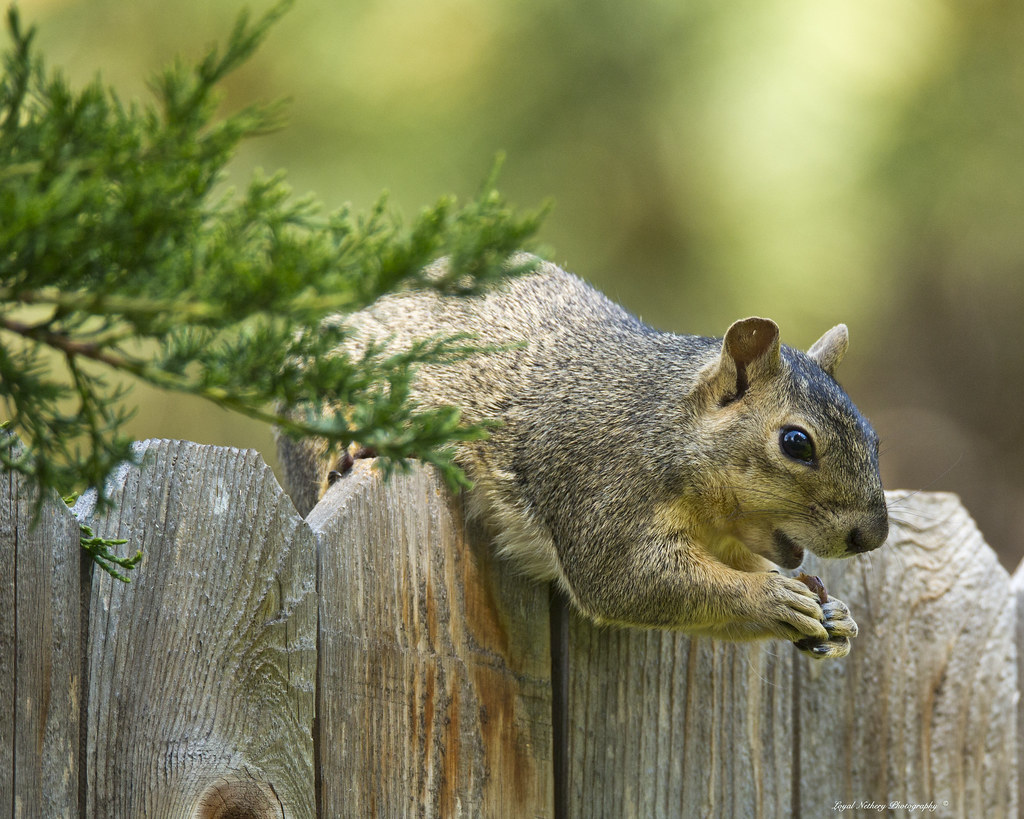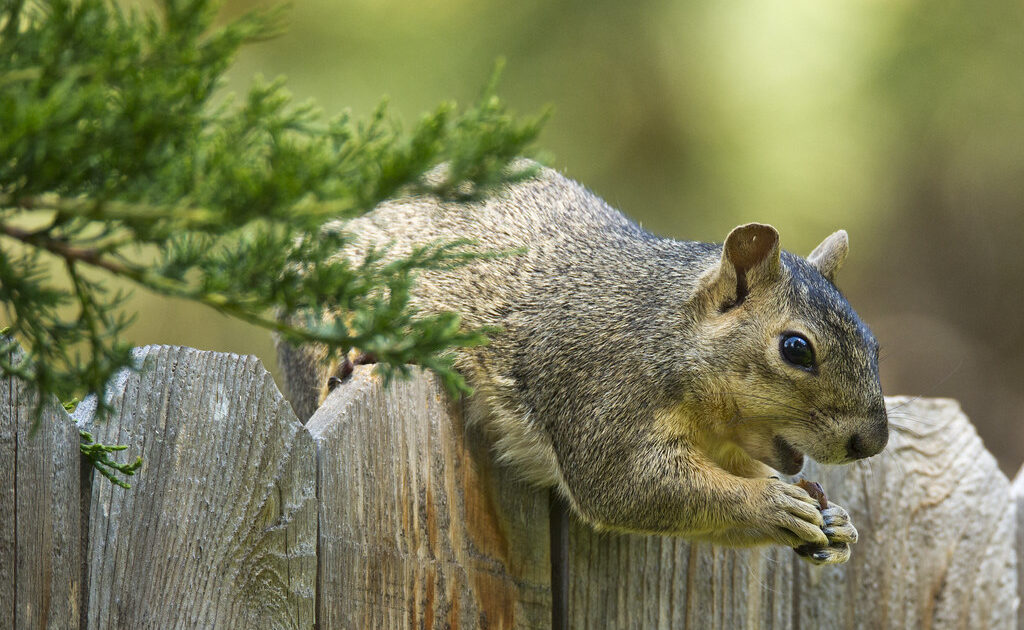You might think of squirrels as just cute little nut-buriers, but they actually play a crucial role in keeping our forests healthy. These busy creatures do a lot for the ecosystems they live in, helping trees grow and maintaining the overall health of the forest.
By looking at their diet, we can see how squirrels help spread seeds, promoting a variety of plant species. But with all their foraging, they sometimes get a bit too close to our homes, leading to a rise in wildlife removal services in Durham.
In this guide, our Skedaddle experts will look into why squirrels are so important for the environment and offer tips on how to humanely and effectively deal with squirrel problems at home. We want to help you appreciate these animals’ ecological roles while also giving you practical advice for managing their presence around your house.
Ecological Impact of Squirrels
Squirrels, particularly tree squirrels, are known for their habit of hoarding food. During the fall, they collect nuts and seeds, burying them in various locations to store for the winter. This behaviour is not just about survival; it plays a crucial part in forest regeneration. Many of the buried nuts are never retrieved, leading to the sprouting of new trees and plants. This natural process helps maintain forest ecosystems, contributes to biodiversity, and supports other wildlife species.
Their activities help disperse seeds over large areas, which promotes genetic diversity among plant populations. As a result, forests remain resilient and capable of adapting to environmental changes. So, while a squirrel’s nut-burying habits might seem trivial, they actually foster the growth of new flora, ensuring the sustainability of forests for future generations.
Moreover, squirrels also inadvertently aid in pest control. By feeding on insects, fungi, and even small mammals, they help keep these populations in check, contributing to a balanced ecosystem. This dietary versatility ensures that squirrels adapt to seasonal changes and varied environments, highlighting their role as versatile caretakers of the forest.
Their constant movement and foraging behaviours aerate the soil, enriching it with nutrients and promoting better water infiltration. This activity also minimizes soil compaction, allowing roots to grow more freely and robustly. Additionally, the presence of squirrels attracts a variety of predators, such as hawks and owls, which helps regulate the population of small mammals and birds in the forest.
In summary, the ecological impact of squirrels extends well beyond their nut-burying habits. These dynamic creatures facilitate seed dispersion, assist in pest control, and improve soil quality, all of which are vital to sustaining healthy forest ecosystems.
What Do Squirrels Eat?
Understanding what squirrels eat can provide insight into their behaviour and why they might be attracted to your property. Squirrels primarily consume a diet of nuts, seeds, fruits, and vegetables. They are particularly fond of acorns, hickory nuts, and walnuts. In addition to these staples, they also eat fungi, tree bark, and occasionally insects or bird eggs.
In urban and suburban areas, squirrels are known to raid bird feeders, gardens, and even garbage cans in search of food. This opportunistic feeding habit can lead them closer to human homes, increasing the chances of an encounter.
In addition to their primary diet, squirrels have been observed consuming a variety of human-provided foods. This can include bread, cereals, and various processed snacks, which, while not necessarily nutritious for them, demonstrate their adaptability in diverse environments. The tendency to scavenge for food in human-dominated areas can lead to conflicts, especially when squirrels invade attics, gardens, or other parts of a home.
To mitigate these issues, homeowners can take several steps. First, secure food sources by using squirrel-proof bird feeders and ensuring that garbage cans are tightly sealed. Secondly, regular maintenance of gardens and yards can deter squirrels from establishing a habitat near homes. Trimming tree branches that are close to the house, for example, can prevent squirrels from using them as bridges to access roofs and attics.
Effective and humane wildlife removal services can provide further assistance. Professionals from Skedaddle, for example, use techniques that not only safely remove squirrels but also prevent future infestations by sealing potential entry points and offering advice on making the property less attractive to these animals. By understanding and managing squirrel behaviour, homeowners can reduce unwanted interactions while still appreciating the positive role these animals play in the broader ecosystem.
Why Choose Skedaddle for Squirrel Removal in Durham?
While squirrels play a beneficial role in nature, their presence in residential areas can lead to significant issues. Squirrels are notorious for chewing through wires, insulation, and wood, causing damage to homes and creating potential fire hazards. They also carry parasites and diseases, posing health risks to humans and pets.
Attempting to remove squirrels on your own can be risky and ineffective. DIY methods often fail to address the root of the problem and can result in harm to both the homeowner and the animal.
At Skedaddle, we understand the intricacies of squirrel behaviour and the challenges they present when they encroach upon human spaces. Our team of wildlife removal experts employs humane and effective methods to ensure the safe removal of squirrels from your home.
Skedaddle’s approach begins with a thorough assessment of your property to identify entry points and nesting sites. We use exclusion techniques to prevent re-entry, ensuring that your home remains squirrel-free. Our methods are designed not only to remove the animals but also to protect your property from future invasions.
One of the key advantages of choosing Skedaddle is our commitment to humane practices. Our solutions are tailored to each specific case, taking into account the unique characteristics of your home and the surrounding environment.
Moreover, Skedaddle offers a comprehensive range of services beyond squirrel removal. We provide cleanup and decontamination services to address any damage or health hazards caused by the infestation. Our team also offers preventative measures, such as sealing potential entry points and providing advice on how to make your property less attractive to wildlife.
The Skedaddle Difference
What sets Skedaddle apart from other wildlife removal services is our expertise, reliability, and dedication to customer satisfaction. Our technicians are highly trained and experienced in handling a wide range of wildlife issues. We use state-of-the-art equipment and adhere to industry best practices to ensure effective and humane solutions.
Our service-oriented approach means we are always available to answer your questions and provide support throughout the removal process. We understand the stress and inconvenience that a wildlife invasion can cause, and we strive to make the experience as smooth and worry-free as possible.
If you’re dealing with a squirrel problem, don’t wait until the damage escalates. Contact Skedaddle today to schedule a consultation and learn more about our humane and effective squirrel removal services. Our team is ready to help you restore your home’s safety and peace of mind.
Let Skedaddle be your trusted partner in resolving wildlife issues, and experience the difference that professional, reliable, and expertise service can make.




